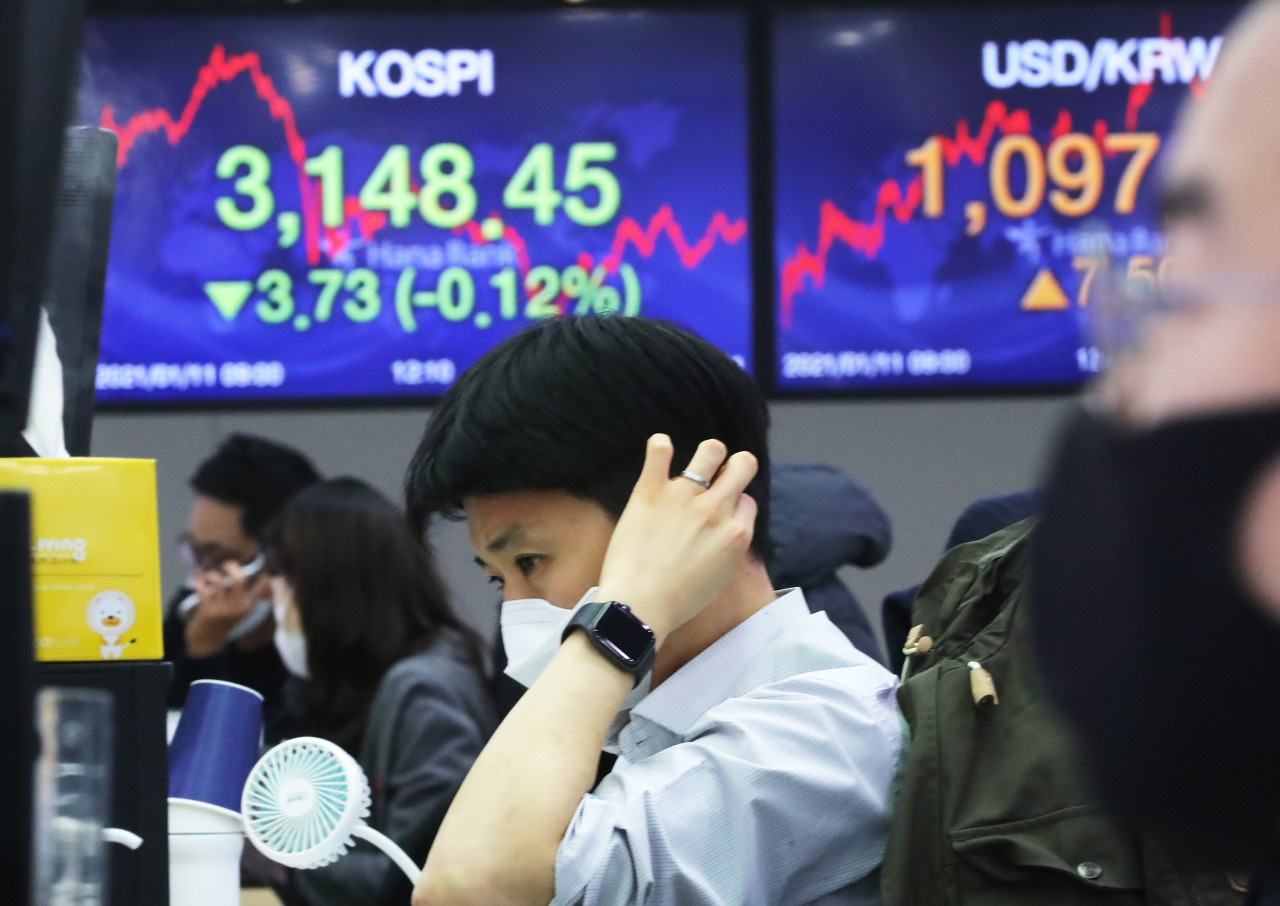Robo-advisers thrust in spotlight amid coronavirus pandemic
By Kim Young-wonPublished : Jan. 17, 2021 - 17:47

The amount of funds entrusted to South Korea’s three leading robo-adviser firms exceeded 1 trillion won ($906 million), highlighting the fast growth of non-face-to-face investment services during the coronavirus crisis, according to market data on Sunday.
Robo-adviser or automated asset management companies Fount, AIM and December & Company currently manage a total of 1.25 trillion won, up 402.9 percent from 247.9 billion won a year ago.
Robo-advisers offer highly tailored asset management services based on automated systems for individuals.
The asset management systems, for instance, design investment portfolios consisting of bonds and exchange-traded funds and rebalance them according to market conditions.
Robo-adviser services have been in the limelight since the coronavirus crisis started early last year as they reduce human interaction.
Fount saw its contracts for asset management grow from 146.1 billion won in late 2019 to 822.7 billion won in late 2020, while AIM newly inked 393 billion won in contracts late last year, up from 295 billion won. December & Company made contracts worth 31.1 billion won late last year, up 27.3 billion won from a year earlier.
“Robo-advisers tend to spread money among diverse assets,” said Kwon Min-kyung, a researcher at local think tank Korea Capital Market Institute. “They can be more effective than direct investment by humans as they exclude emotions and make rational investment.”
As savings yields are staying disappointingly low these days, individuals will likely turn toward new investment strategies like those offered by artificial intelligence-powered advisers, according to market watchers.
Individual investors seem to expect that robo-advisers will be able to offer new value, different from traditional asset management firms that usually put priority on selling investment products to customers over anything else, they said.
“Those robo-adviser startups also need to continue providing differentiated value for customers if they do not want to be a short-term fad,” a market watcher said.
By Kim Young-won (wone0102@heraldcorp.com)
Robo-adviser or automated asset management companies Fount, AIM and December & Company currently manage a total of 1.25 trillion won, up 402.9 percent from 247.9 billion won a year ago.
Robo-advisers offer highly tailored asset management services based on automated systems for individuals.
The asset management systems, for instance, design investment portfolios consisting of bonds and exchange-traded funds and rebalance them according to market conditions.
Robo-adviser services have been in the limelight since the coronavirus crisis started early last year as they reduce human interaction.
Fount saw its contracts for asset management grow from 146.1 billion won in late 2019 to 822.7 billion won in late 2020, while AIM newly inked 393 billion won in contracts late last year, up from 295 billion won. December & Company made contracts worth 31.1 billion won late last year, up 27.3 billion won from a year earlier.
“Robo-advisers tend to spread money among diverse assets,” said Kwon Min-kyung, a researcher at local think tank Korea Capital Market Institute. “They can be more effective than direct investment by humans as they exclude emotions and make rational investment.”
As savings yields are staying disappointingly low these days, individuals will likely turn toward new investment strategies like those offered by artificial intelligence-powered advisers, according to market watchers.
Individual investors seem to expect that robo-advisers will be able to offer new value, different from traditional asset management firms that usually put priority on selling investment products to customers over anything else, they said.
“Those robo-adviser startups also need to continue providing differentiated value for customers if they do not want to be a short-term fad,” a market watcher said.
By Kim Young-won (wone0102@heraldcorp.com)








![[KH Explains] Hyundai's full hybrid edge to pay off amid slow transition to pure EVs](http://res.heraldm.com/phpwas/restmb_idxmake.php?idx=644&simg=/content/image/2024/04/18/20240418050645_0.jpg&u=20240419100350)






![[From the Scene] Monks, Buddhists hail return of remains of Buddhas](http://res.heraldm.com/phpwas/restmb_idxmake.php?idx=652&simg=/content/image/2024/04/19/20240419050617_0.jpg&u=20240419175937)

![[KH Explains] Hyundai's full hybrid edge to pay off amid slow transition to pure EVs](http://res.heraldm.com/phpwas/restmb_idxmake.php?idx=652&simg=/content/image/2024/04/18/20240418050645_0.jpg&u=20240419100350)

![[Today’s K-pop] Illit drops debut single remix](http://res.heraldm.com/phpwas/restmb_idxmake.php?idx=642&simg=/content/image/2024/04/19/20240419050612_0.jpg&u=)